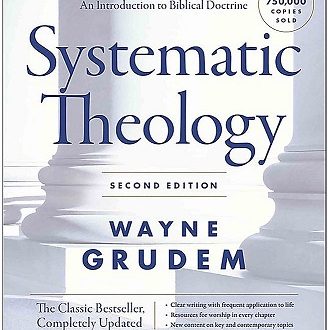 Albert Mohler has responded to the McLaren article that I noted yesterday. In his conclusion, Mohler says this:
Albert Mohler has responded to the McLaren article that I noted yesterday. In his conclusion, Mohler says this:
“This is…why a response to Brian McLaren is now in order. He is to be credited with taking theology seriously, with making clear arguments, and with a willingness to engage the conversation. I return his candor with my own, and I am ever more convinced of why this controversy is both inevitable and clarifying.
“We are talking about two rival understandings of the Gospel here — two very different understandings of theology, Gospel, Bible, doctrine, and the totality of the Christian faith. Both sides in this controversy understand what is at stake.
“And that, dear reader, is why this conversation must continue.”
Read the rest here.




23 Comments
Christiane
Al Mohler has written:
“We are talking about two rival understandings of the Gospel here — two very different understandings of theology, Gospel, Bible, doctrine, and the totality of the Christian faith. Both sides in this controversy understand what is at stake.”
“And that, dear reader, is why this conversation must continue.â€
This is a very dramatic statement.
It would be fascinating to see McLaren and Mohler debate one another publicly on these issues.
Donald Johnson
AM wrote about the Bible: “We are accountable to it all, and it is all true, trustworthy, authoritative, sufficient, and, with the aid of the Holy Spirit, clear in its message.”
This is NOT what the original protestant reformers claimed, they claimed that the Bible is sufficiently clear about SALVATION that it did not need the supposed required assistence of the Roman Catholic church to “get it right”. They admitted that other parts were not necessarily as clear.
I see in this claim by AM an attempt to set up a Magisterium by AM, namely HIS interpretation of the Bible is THE ONLY CORRECT interpretation. I find this very arrogant and not at all in line with historic Baptist thought, see the historical Baptist idea of soul suffiency.
Brian
“I see in this claim by AM an attempt to set up a Magisterium by AM . . .”
Don, you are reading way too much into Al Mohler’s article. Ironically, the issues in the back and forth between McLaren and Mohler concern a narrow focus of interpreting the gospel, which is about salvation. You certainly know that Al Mohler would readily admit that not all areas of the Bible are clearly understood and agreed upon. But by all means kept that McLaren can judge “old kind of Christians” vibe going, but protest when old kind of Christians judge back in kind. I guess emergents have a special gift of judging in a non-judgmental way that is never to be questioned.
Donald Johnson
FWIIW, I have concerns with some of McLaren’s statements also. But not with him wanting a conversation.
Go back and read Mohler again and see that he is talking about the (whole) Bible being clear. I find this claim amazing. Especially because what it means in practise is HIS interpretation.
On salvation, I do not think having correct understandings of heaven or hell (or earth or Creation) are necessary for salvation. What is needed is a recognition of one’s sin and accepting the offer of Jesus of eternal life and then walking with Jesus.
Chris
Donald how can we understand what sin is if we do not understand the penalty for sin? How can we understand the Good News if we do not understand the “bad news” or understand what the Good News means?
I mean if I told a child that if they don’t clean their room “something” will happen, what is the likelihood that they would pay attention?
Now if I told a child if they don’t clean their room they can’t have ice cream and they understand how delicious ice cream is, they now have an understanding of choices and consequences.
God’s redeeming love becomes irrelevant if we do not understand what it redeems us from and where it leads us to.
Donald Johnson
Sin separates us from relationships. Since we were made by God to be in relationships, we will notice this lack even if we do not believe in God.
Brian
I reread the article. I still do not see what you are seeing, Don. You cannot describe the gospel without going into other areas of doctrine. You also have to at least brush upon issues of epistemological authority, especially in this day. But his description of the clarity of Scripture is in line with the Reformation doctrine of the “perspicuity of Scripture.” He was not talking about the trifles or even weighty matters that “old Christians” have disagreed upon such as eschatology, but everything flowed from a discussion of the meaning of the gospel.
The reformers would have a thought heaven and hell were quite clear. Some have emphasized the spiritual consequences of hell more than spatial, geographical, and descriptive features, but very few doubted its reality in Protestant churches until about 150 years ago.
I will take you at your Word that you are a believer in Christ. It is possible not to understand some significant features according to historic reformation Christianity, and become a believer. However, do McLaren and Bell believe that recognizing sin is a part of the gospel? May be they go through that step with those who have sensitive consciences, but their concept of sin is a moving goalpost. What will sin be in McLaren and Bell’s spiritual children and grandchildren? Will it be falling short of the glory of the progressive political agenda for the world?
Bell’s gospel, a few years ago, was that you cannot opt into the kingdom of God, but you can opt out. Now that has evolved into the ones who have opted out very well may get a chance to opt back in because of God’s love ultimately winning. That sounds different from “What is needed is a recognition of one’s sin and accepting the offer of Jesus of eternal life and then walking with Jesus.”
Chris
Joshua I was not suggesting that the way to convert someone is to get them to understand what hell is. However I do believe that it is one way that God uses to draw people to Him.
You can accept Gods love on a basic level without that understanding. But you will never understand the depth of that love until you understand what eternal separation from God means.
Sin has it’s consequences both in the here and now and in eternity.
Derek
If we don’t know the bad news, it makes it difficult or impossible to understand the good news. For instance, suppose you have a malignant tumor, but you are told that the tumor is benign. It does impact how you perceive the treatments your doctor recommends. It impacts your sense of urgency. It may even impact your willingness to undergo treatment at all.
RD
Chris, you made the following comment: I mean if I told a child that if they don’t clean their room “something†will happen, what is the likelihood that they would pay attention?
Now if I told a child if they don’t clean their room they can’t have ice cream and they understand how delicious ice cream is, they now have an understanding of choices and consequences.”
To remain true to the Genesis account, it would be more accurate to tell the kids, “If you don’t clean your room you will be cast into a vast, dark, blazing hot closet where a masochistic madman will torture your flesh endlessly and in hideous fashion forever” Or perhaps, “If you don’t clean your room you’ll be buried alive in a plywood box, kept alive by an air line but forever interred beneath the ground.”
The conversation continues to be 1) is this what the Genesis account puts into motion? and 2) is this reflective of the kind of “parental” response the Heavenly Father (as represented in Jesus) would have to the disobediance of his children?
The truth is, throughout scripture–from the earliest OT writings up through the later writings of the NT–there is an evolving depiction of the idea of heaven, hell, Satan and even God.
Chris
RD I have a response to your post but before I post it can you tell me what you believe the bible tells us about heaven and hell?
RD
Chris,
I don’t have time to respond at length. I’ll start with the first question I mentioned in my last post. Where is the idea of original sin with a consequence of eternal damnation spelled out specifically in the Eden narrative? I think there is a huge difference between what Genesis ch 1-3 actually recounts for us and how the common theological narrative later developed.
andy
There seems to be an underlying assumption in the statements from Bell and McClaren, and I think it’s a reflection of the culture at large, that for someone to state with certainty that they know a thing is often understood as arrogant, prejudiced, and narrow-minded while admitting mystery and leaving loose ends untied with regards to definitive statements is humble, gracious, and enlightened.
Derek
Andy,
Tim Challies has a great post today that discusses the trend you noted:
http://www.challies.com/articles/the-new-evangelical-virtues
Christiane
“9 To some who were confident of their own righteousness and looked down on everyone else, Jesus told this parable: 10 “Two men went up to the temple to pray, one a Pharisee and the other a tax collector. 11 The Pharisee stood by himself and prayed: ‘God, I thank you that I am not like other people—robbers, evildoers, adulterers—or even like this tax collector. 12 I fast twice a week and give a tenth of all I get.’
13 “But the tax collector stood at a distance. He would not even look up to heaven, but beat his breast and said, ‘God, have mercy on me, a sinner.’
14 “I tell you that this man, rather than the other, went home justified before God. For all those who exalt themselves will be humbled, and those who humble themselves will be exalted.â€
Luke 18:9-14
I think we are supposed to learn something important here.
Very, very important.
RD
Again, not much time to post a detailed comment, but I wanted to try to add to my earlier question regarding original sin and an eternal destination of Hell.
In Torah there is no mention of an eternal place of never ending torment for those who do not follow God. In fact, throughout the OT the rewards for following God come in the form of earthly benefits (good health, protection from enemies, inherited lands to farm, bountiful herds, etc.). I don’t see any teaching in the OT that follows the narrative of “mankind is systemically sinful, destined to eternal separation from God and endless torture and torment.”
It seems very interesting, to me, that the ideas of Hell and Satan so closely reflect similar Persian ideas. Is it more than mere coencidence that these ideas began to enter Jewish theology after they had spent years and years as captives to the Babylonians and, later, the Persians?
If Hell, as it’s been taught within the evangelical tradition, is such a straight-forward fact, why did it take thousands of years to enter into the Jewish theological narrative?
andy
Thanks for that, Derek.
K Gray
What cured me of the modern “who can know” school of thought is this: look up every instance of every variation of the word “know” in the Bible. One of he spiritual GIFTS is knowledge. The Holy Spirit will lead you into what — all the truth. Grow in the grace and knowledge of Christ. Paul: “And we know…and we know…and we know…” You will know the truth, and the truth will set you free. Know this. Truly truly I say to you. And so forth and so forth and so forth.
Certain things God wants us to know. He revealed them to us.
How can one boldly proclaim what one cannot know? How can one cling to a promise that cannot be understood at some basic level? How can one “faith” amorphous concepts which must continuously be held lightly? What does stand firm mean?
What does eternal mean, as in “eternal life,” if “eternal destruction” doesn’t mean unending?
What does “thrown into the lake of fire” mean?
What is God’s wrath? What, and when, is He holding it back for?
God created the earth and all in it and called it good. Man fell. Is the earth now hell? Did man (imageo dei) make it hell?
What does salvation mean? Saved from what? What have I been “rescued” from? I’m still here and there is a lot of tragedy around. Understand, I’m not attached to there being a place of eternal destruction, not in the least. But I don’t really care what Rob Bell thinks, I care what God has said.
Bell seems to be sowing a “has God really said” seed which affects far more than the doctrine of hell.
He is telling me that what I read I can’t really believe. I don’t suppose my children can understand it either. Or you. Or Al Mohler.
The people who urge humility are the ones who can understand it well enough to say that the rest of us can’t know the gospel, not really.
Christiane
“The people who urge humility . . ”
from Matthew 11:29 comes this:
” . . learn from Me,
for I am gentle
and humble in heart “
Christiane
“”He has shown you, O mortal what is good; and what does the LORD require of you?
but to do justice,
to love kindness,
and to walk humbly with your God.”
—Micah 6:8
K Gray
Well of course, Christiane. Humility is one of the fruits of the Spirit. Let me rephrase.
“People who argue primarily that other people should be more doctrinally humble….”
It’s not that the admonition to be humble is never needed. Sometimes it is. But currently it’s frequently and broadly applied, often overapplied, as a foundational argument for any doctrinal disagreement (e.g., one simply cannot know); as a criticism of heart attitudes (to simply state a doctrine equals arrogance); or as a complete substitute for substantive response.
Looks like this sometimes:
Speaker: Hell is a place of eternal destruction.
Response 1: That is your interpretation, which is fine for you. I disagree. I have studied Scripture and concluded that the language on hell is a metaphor for the destructive consequences for sin. Doctrinal humility requires that either or both of our interpretations may be reality; only God can know.
Response 2: Your confidence in traditional dogma on hell is kind of arrogant. Isn’t a little more Christian humility in order?
Response 3: Please. What puts me off everything you say is your lack of doctrinal humility. So there’s no point in responding at all.
K Gray
And yes! Jesus is the perfect Person to urge humility!
Karen
RD, classically (following the early Christian Fathers of the Church), Christians have interpreted the lesser light (the OT) in terms of the greater light (Christ, the NT). Did Jesus really not understand the import of the OT? Why the warnings about hellfire then? Just wondering what your take is on that.
I do not say this to support all that the idea of “hell” or “hellfire” conjures up for most modern western (and especially Evangelical) Christians, however, informed as they are (among other things) by Penal Substitutionary ideas about God’s motivation in the incarnation, death and resurrection of God, the Son, Jesus Christ. I’m an Eastern Orthodox Christian, and for the most part Orthodox reject those ideas (except perhaps in a VERY nuanced form and as a peripheral NT metaphor for one aspect of our salvation in Christ, which for us Orthodox is not about the vicarious punishment of an innocent victim for the appeasement of an angry deity, but about God in Christ ransoming humankind from Sin and Death in Christ’s victory over the same as the new Adam.
Also, there are Orthodox writers (St. Gregory of Nyssa and St. Isaac the Syrian) who held to a form of “Trinitarian universalism” as a hope (not a dogma) based on Christ’s ultimate defeat of all “dominion, authority and power,” and finally even Death, in the consummation of the ages in the “Apokatastasis” (the “restoration” mentioned in Acts 3:21 of all things in Christ that He might be “all in all.” See also 1 Corinthians 15:28.)